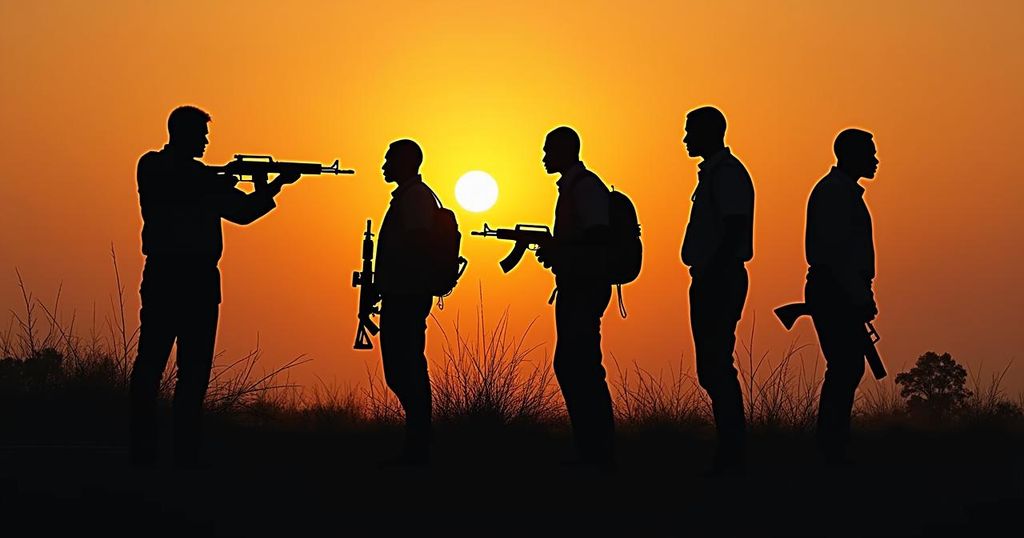Mozambique’s Elections: New Generation Seeks Change Amid Challenges

Mozambique is preparing for elections that may result in the first president born after independence in 1975. With President Filipe Nyusi stepping down, four candidates, including Daniel Chapo and Ossufo Momade, are competing amid concerns over corruption, armed conflict in Cabo Delgado, unemployment, and climate challenges. Many young voters express a desire for change from the old political guard. The election outcomes will significantly impact the nation’s future stability and governance.
Mozambique is poised to cast its votes in an election that has the potential to introduce a younger president, an event not witnessed since the nation’s liberation from Portuguese colonizers in 1975. Approximately 17 million citizens of Mozambique’s 32 million population are eligible to participate in this democratic process, which will encompass both presidential and parliamentary races across its 11 provinces. Current President Filipe Nyusi, aged 65, will not seek reelection after completing two terms. His tenure has been marked by a scandal involving a tuna bond scheme that resulted in significant corruption and the imprisonment of numerous high-ranking party officials. Nyusi could represent the final chapter of the historic Frelimo leadership that originated from the country’s independence struggle. The looming elections see various candidates vying for the presidency, each promising different strategies to address the pressing issues facing Mozambique, such as the ongoing armed conflict in Cabo Delgado, high unemployment rates, and the impacts of climate change. Daniel Chapo, a prominent Frelimo candidate, is perceived as the frontrunner due to his party’s incumbency; however, he grapples with the party’s tarnished reputation. Ossufo Momade leads the opposition Renamo party and retains an established base following his past role in ending civil strife. Venancio Mondlane, an independent candidate, appeals to the youth demographic with promises of substantial change, while Lutero Simango of the MDM champions local resource processing to enhance job creation. The prevailing sentiments among voters reveal a desire for significant change in governance, with many young citizens expressing frustration towards the aging political elite. The upcoming election is set against a backdrop of insecurity and economic hardship, as the country navigates pervasive food shortages exacerbated by climate-induced challenges. As the electoral process unfolds, the National Election Commission will oversee vote counting, with official results expected to be released within a span of 15 days post-election. This electoral event represents a crucial juncture in Mozambique’s political landscape, where the future governance will significantly influence both the domestic and regional stability of the country.
Mozambique’s elections traditionally offer a vital insight into its political climate and socioeconomic challenges. After achieving independence from Portuguese colonial rule in 1975, the country has experienced varying degrees of stability and turmoil, influenced significantly by its leadership choices. The current election not only reflects the aspirations of a burgeoning youth demographic but also signifies a potential shift from an established political order that has dominated since independence. The ramifications of past corruption scandals and the ongoing armed conflict in the northern region further complicate the electoral context. Candidates are thus positioned within a framework of public expectations for transparency, economic amelioration, and national security, posing critical questions about Mozambique’s future trajectory.
The upcoming elections in Mozambique signify a critical juncture for the nation, with the hopeful emergence of a younger political leadership amidst a backdrop of significant challenges such as corruption, armed conflict, and climate vulnerabilities. Voters are faced with options that represent both continuity and change, prompting the question of whether the country can evolve beyond the entrenched systems of the past. The conduct of the elections, and the response of the populace to the outcomes, will likely define Mozambique’s political landscape for years to come.
Original Source: www.aljazeera.com







